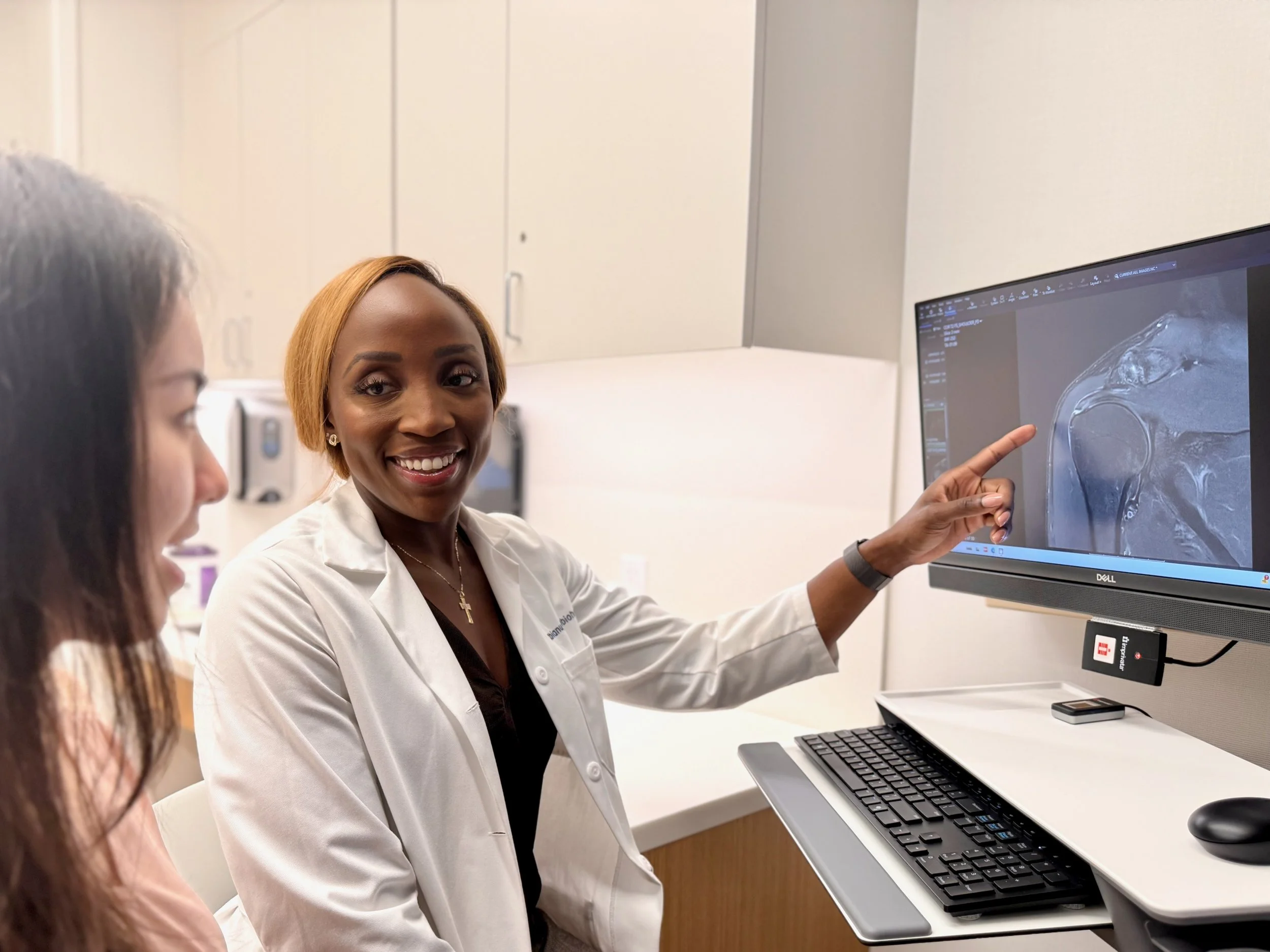Your First Visit
We look forward to working with you as you begin your recovery. We understand that coming to the office requires time and effort, including adjusting your schedule and dealing with travel and parking. We value your time and strive to make every visit efficient and meaningful. If questions arise, please reach out by phone.
What to Expect
Your first appointment is a chance for you and Dr. Obioha to establish a rapport and talk in-depth about the reason for your visit. Sharing clear information about your symptoms helps us determine the most appropriate next steps in your care.
Some examples of questions you may be asked include:
When did your symptoms start? Did something trigger them?
What makes them better or worse?
Do certain activities bring them on?
Where do you feel the symptoms?
Which activities or sports matter most to you, and how are these symptoms getting in the way?
A targeted physical examination will follow, which may include testing range of motion, strength, and joint stability. If additional information is needed, imaging studies such as X-rays, CT scans, or MRIs may be ordered - even if you have had these done before, we may need updated imaging to get a full picture of your issue. Together, we will then review treatment options, including physical therapy, injections, or surgical procedures, when appropriate. The goal of this visit is to create a personalized plan to help you safely return to the activities you enjoy!
What to Bring to Your First Visit
Driver’s License of Valid Photo ID
Insurance Card
Bring any imaging studies (X-rays, MRI, or CT scans) if you already have them.
Wear or bring comfortable clothing so we can fully evaluate your movement and joint function.
If you have previously been treated for these symptoms, please bring:
Summary of the care you received, including any medications, injections, physical therapy, or surgeries
If you have had previous surgery on the affected knee, shoulder, or hip, we recommend bringing a copy of the operative report from your surgeon’s office and any clinic notes
I encourage questions and collaboration—your input helps guide the best care plan for you!

